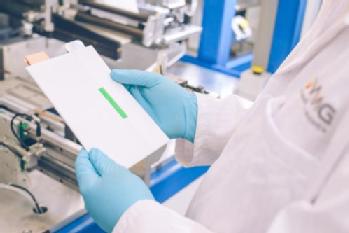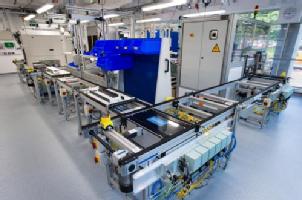WMG News - Latest news from WMG
Challenges of transport electrification skills to be addressed by Universities of Warwick and Newcastle
 Two leading universities in the field of electrification – WMG at the University of Warwick and Newcastle University – are coming together to ensure the UK workforce has the skills necessary to meet the challenges of the transition to fully electric production.
Two leading universities in the field of electrification – WMG at the University of Warwick and Newcastle University – are coming together to ensure the UK workforce has the skills necessary to meet the challenges of the transition to fully electric production.
As anchor higher education institutions with exceptional research and innovation programmes operating in regions at the forefront of the UK’s electric revolution, the universities intend the collaboration will enable the growth of a talent pipeline of graduates and postgraduates into UK business. Led by WMG at the University of Warwick and Zero Carbon Futures at Newcastle University part of the school of engineering, the effort will identify the people, skills and facilities needed across a range of academic disciplines and levels in order to deliver new curriculums to meet growing industry demand.
The UK’s move to fully electric vehicle production and domestic battery manufacturing represents the largest shift in industrial skills for the UK in a generation, leaving competency gaps at all job levels, particularly in engineering and manufacturing roles which will need to be filled with specific education and training. The Faraday Institution estimates that to meet automotive production demand by 2040, an additional 70,000 skilled employees will be needed for battery manufacture and in the associated material supply chain.
“In light of COP26, which stressed the need for electrification to help us combat climate change and reach Net Zero goals, it is imperative that researchers and industry work together to bridge the gaps and create a smooth transition to electrification,” commented Dr Benjamin Silverstone from WMG, University of Warwick. “We are delighted to be working with Newcastle University and believe that together we can define what and who needs upskilling, reskilling and new-skilling.”
and industry work together to bridge the gaps and create a smooth transition to electrification,” commented Dr Benjamin Silverstone from WMG, University of Warwick. “We are delighted to be working with Newcastle University and believe that together we can define what and who needs upskilling, reskilling and new-skilling.”
Professor Colin Herron CBE, Zero Carbon Futures at Newcastle University and Faraday Institution North East regional liaison said, “The bringing together of the two leading universities in electrification, located in the two regions leading on transport electrification is an exciting prospect, and one which should deliver the skills required for massive challenges ahead.”
“We fully support this collaboration between two powerhouse institutions working at the forefront of electrification,” said Professor Pam Thomas, CEO, The Faraday Institution. “Such innovative partnerships will enable the UK to anticipate and deliver the skills needed to fully electrify transport, grow new talent for battery production, and support green growth and economic development."
Another key objective of the collaboration is to help shape national and regional skills strategies and in so doing support national and regional economic development. The call for a collaborative approach to re-skilling, up-skilling and new-skilling the workforce for the electric revolution was published in a report by WMG, University of Warwick, the Faraday Institution and the High Value Manufacturing Catapult ‘The Opportunity for a National Electrification Skills Framework and Forum’ in September 2021.
ENDS
14 DECEMBER 2021
NOTES TO EDITORS
High-res images available at:
https://warwick.ac.uk/services/communications/medialibrary/images/july_2020/wmg_ukbic-33.jpg
Caption: A battery pouch made at WMG, University of Warwick
Credit: WMG, University of Warwick
https://warwick.ac.uk/services/communications/medialibrary/images/july_2020/d2807-27.jpg
Caption: A battery production line at WMG, University of Warwick
Credit: WMG, University of Warwick
https://warwick.ac.uk/services/communications/medialibrary/images/july_2020/wmg_ukbic-49.jpg
Caption: A battery production line at WMG, University of Warwick
Credit: WMG, University of Warwick
FOR FURTHER INFORMATION PLEASE CONTACT:
Alice Scott
Media Relations Manager – Science
University of Warwick
Tel: +44 (0) 7920 531 221
E-mail: alice.j.scott@warwick.ac.uk
